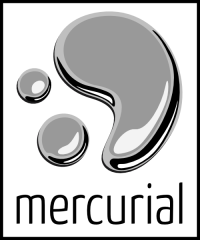
"Far from a betrayal, Chrome represents the best possible future for open source developers everywhere. What Google has delivered is a giant-slayer, a self-contained WebOS that could one day supplant Microsoft's desktop hegemony. Chrome is the ultimate end-run -- around Windows, Win32/.Net, the whole entrenched ecosystem.
"With Chrome, FOSS Web developers can finally deliver applications that approach the functionality and runtime fidelity of native code, leveraging the new browser's robust process model and highly optimized JavaScript engine to isolate and accelerate these next-generation Rich Internet Applications (RIA).
"Given the lackluster state of FOSS desktop software (it sucks), such a paradigm shift might actually be a good thing. Why waste time with yesterday's clunky widget toolkits when you can leverage cool, next-generation technologies -- such as AJAX and Google Gears -- to power your write-once-run-anywhere FOSS projects?
"Let's face it: Firefox, for all its accolades, is old technology. Single process design? Plug-ins running amok? It's all so 2007. Chrome gives FOSS Web developers what they've been craving: A robust, stable platform that lets them push the limits of RIA design while leaving the old development paradigms behind.
"This is the future of FOSS, a future where Chrome becomes the OS and Linux is relegated to its rightful place as a glorified boot loader. You know that's where they're headed. You know that's Google's master plan. The wunderkinds envision a world where the OS is irrelevant, where everything revolves around their pumped-up browser and advertising-laced SaaS offerings.
"It's a beautiful vision of a glorious future. It's time for the FOSS community to stop resisting, to heap the broken carcass of Firefox upon the sacrificial flames and embrace your new-found savior! He's new! He's shiny! He's ... Chrome!"
-- Randall Kennedy in InfoWorld
Discuss amongst yourselves.
 Over the past few weeks I've figured out how to get Scala working in our pre-existing code-base that uses Eclipse, Maven, Hibernate, JUnit, and Spring. I'm now able to write Scala code side-by-side with the exiting Java code in Eclipe and have the Scala code use any of our existing Java DAO's, etc.
Over the past few weeks I've figured out how to get Scala working in our pre-existing code-base that uses Eclipse, Maven, Hibernate, JUnit, and Spring. I'm now able to write Scala code side-by-side with the exiting Java code in Eclipe and have the Scala code use any of our existing Java DAO's, etc. Distributed Version Control Systems are where it's at. Give up this lame Subversion crap and move to something worth using.
Distributed Version Control Systems are where it's at. Give up this lame Subversion crap and move to something worth using.